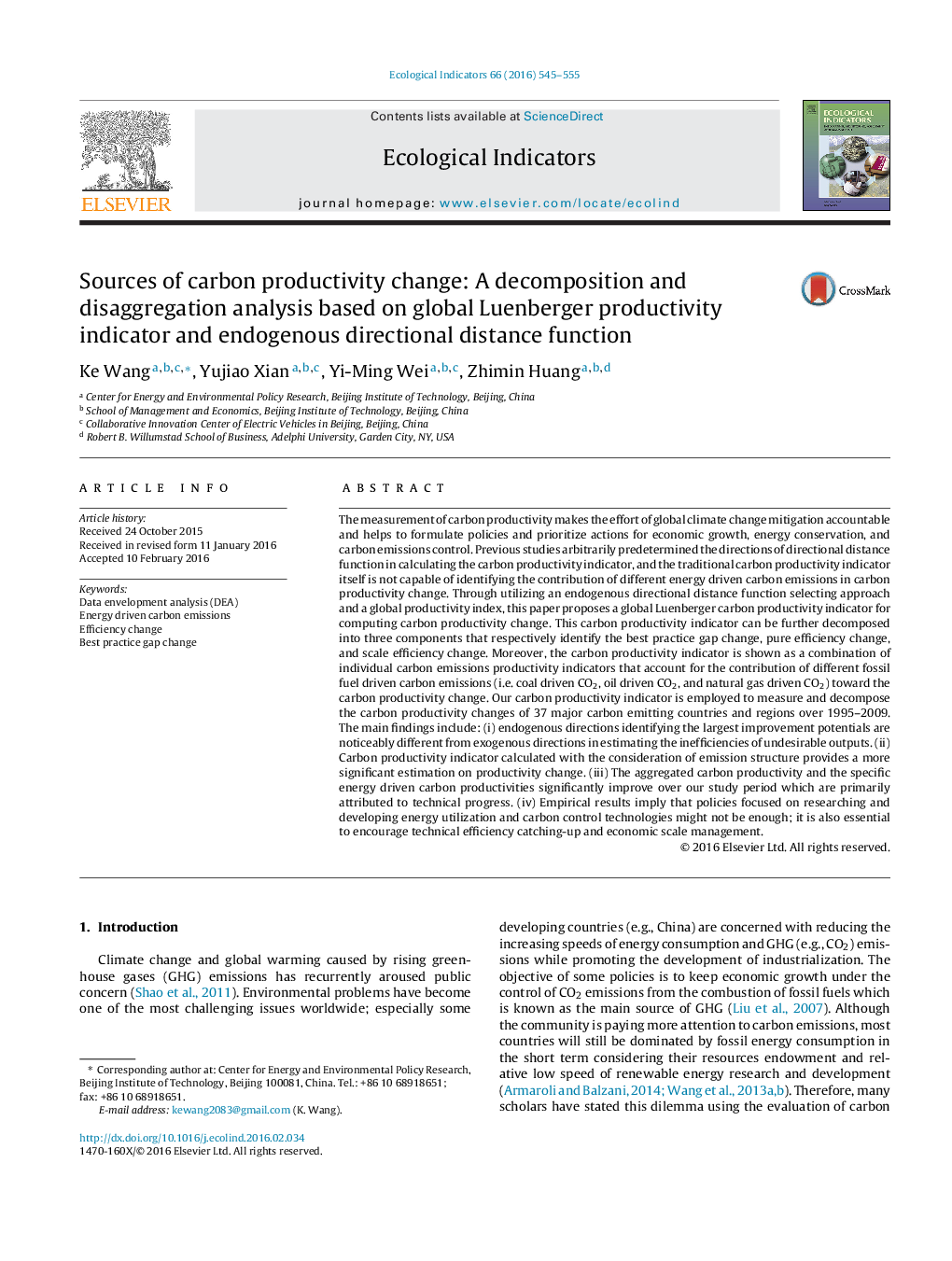| Article ID | Journal | Published Year | Pages | File Type |
|---|---|---|---|---|
| 6293536 | Ecological Indicators | 2016 | 11 Pages |
Abstract
The measurement of carbon productivity makes the effort of global climate change mitigation accountable and helps to formulate policies and prioritize actions for economic growth, energy conservation, and carbon emissions control. Previous studies arbitrarily predetermined the directions of directional distance function in calculating the carbon productivity indicator, and the traditional carbon productivity indicator itself is not capable of identifying the contribution of different energy driven carbon emissions in carbon productivity change. Through utilizing an endogenous directional distance function selecting approach and a global productivity index, this paper proposes a global Luenberger carbon productivity indicator for computing carbon productivity change. This carbon productivity indicator can be further decomposed into three components that respectively identify the best practice gap change, pure efficiency change, and scale efficiency change. Moreover, the carbon productivity indicator is shown as a combination of individual carbon emissions productivity indicators that account for the contribution of different fossil fuel driven carbon emissions (i.e. coal driven CO2, oil driven CO2, and natural gas driven CO2) toward the carbon productivity change. Our carbon productivity indicator is employed to measure and decompose the carbon productivity changes of 37 major carbon emitting countries and regions over 1995-2009. The main findings include: (i) endogenous directions identifying the largest improvement potentials are noticeably different from exogenous directions in estimating the inefficiencies of undesirable outputs. (ii) Carbon productivity indicator calculated with the consideration of emission structure provides a more significant estimation on productivity change. (iii) The aggregated carbon productivity and the specific energy driven carbon productivities significantly improve over our study period which are primarily attributed to technical progress. (iv) Empirical results imply that policies focused on researching and developing energy utilization and carbon control technologies might not be enough; it is also essential to encourage technical efficiency catching-up and economic scale management.
Related Topics
Life Sciences
Agricultural and Biological Sciences
Ecology, Evolution, Behavior and Systematics
Authors
Ke Wang, Yujiao Xian, Yi-Ming Wei, Zhimin Huang,
